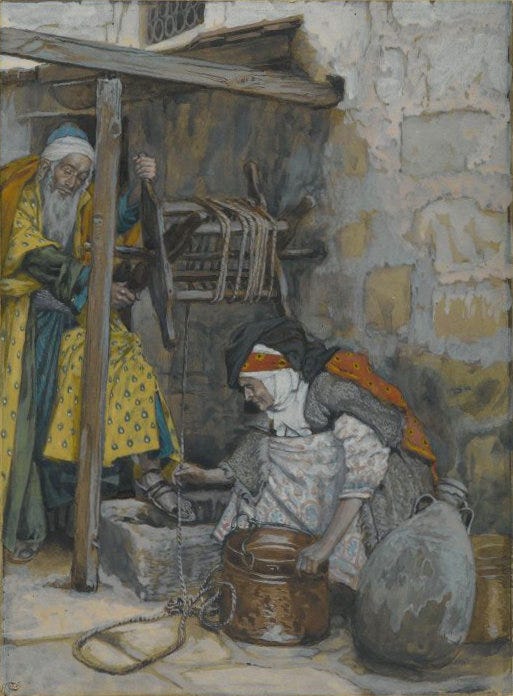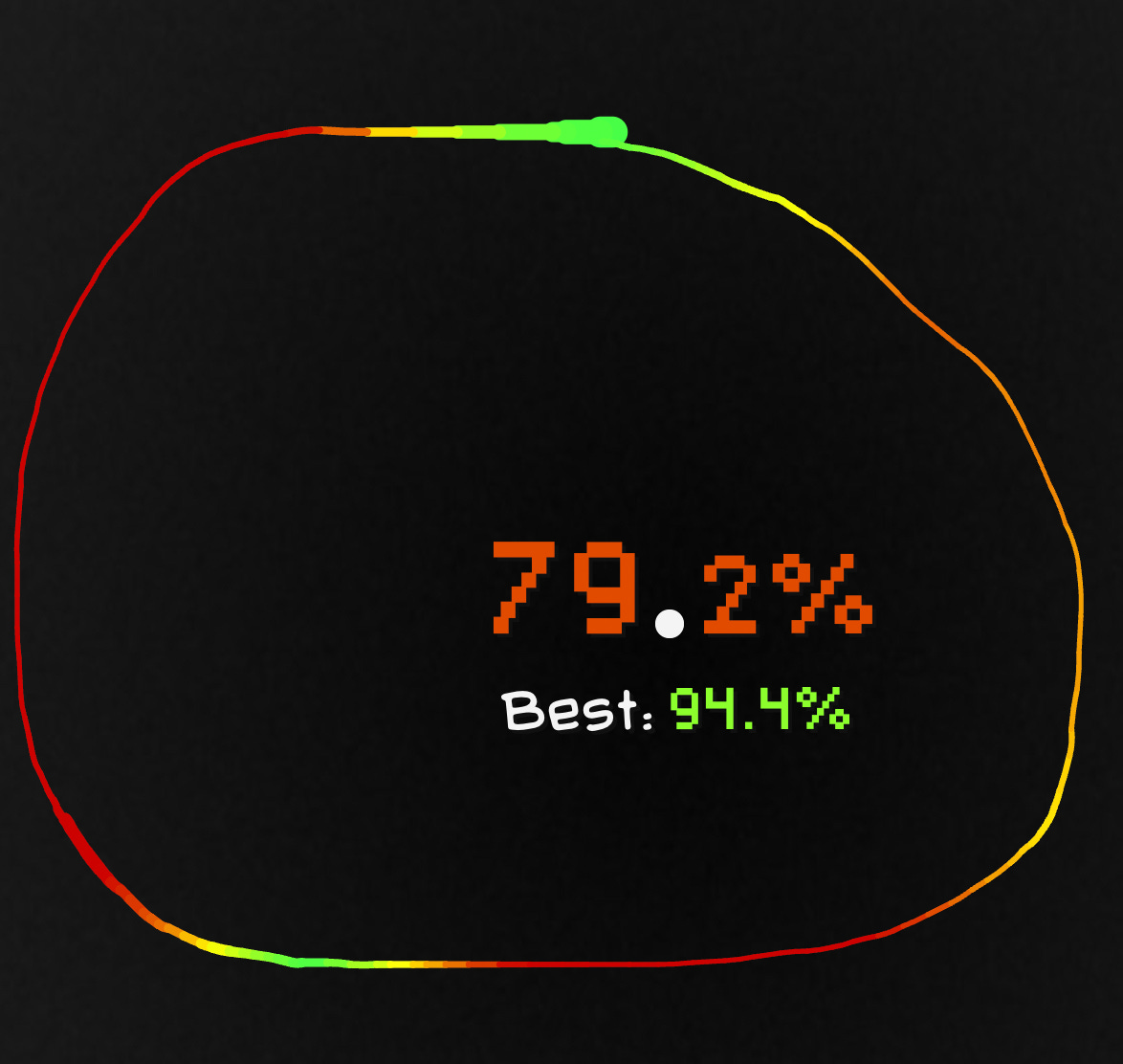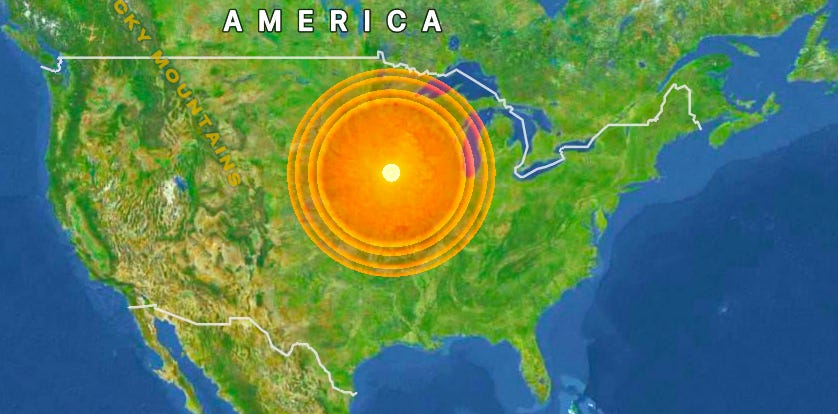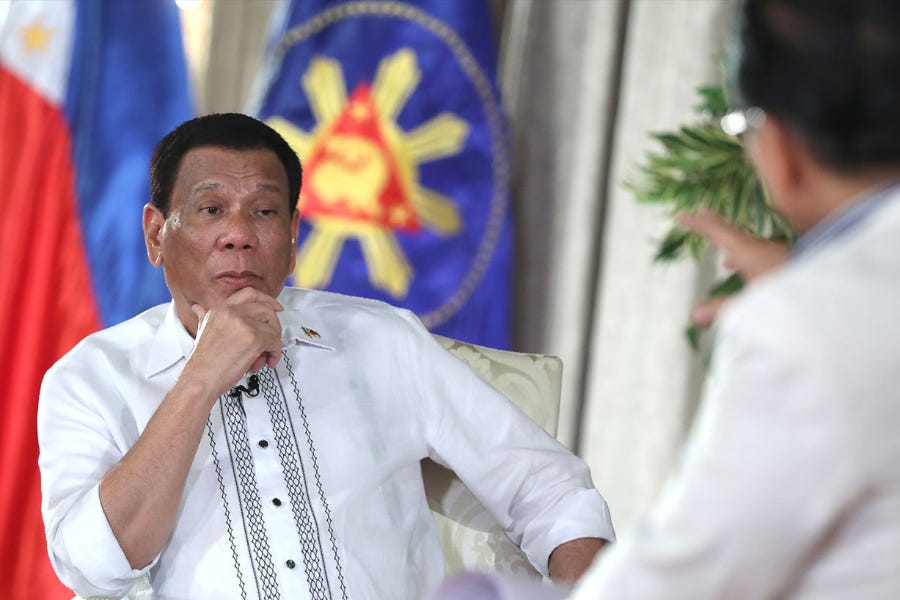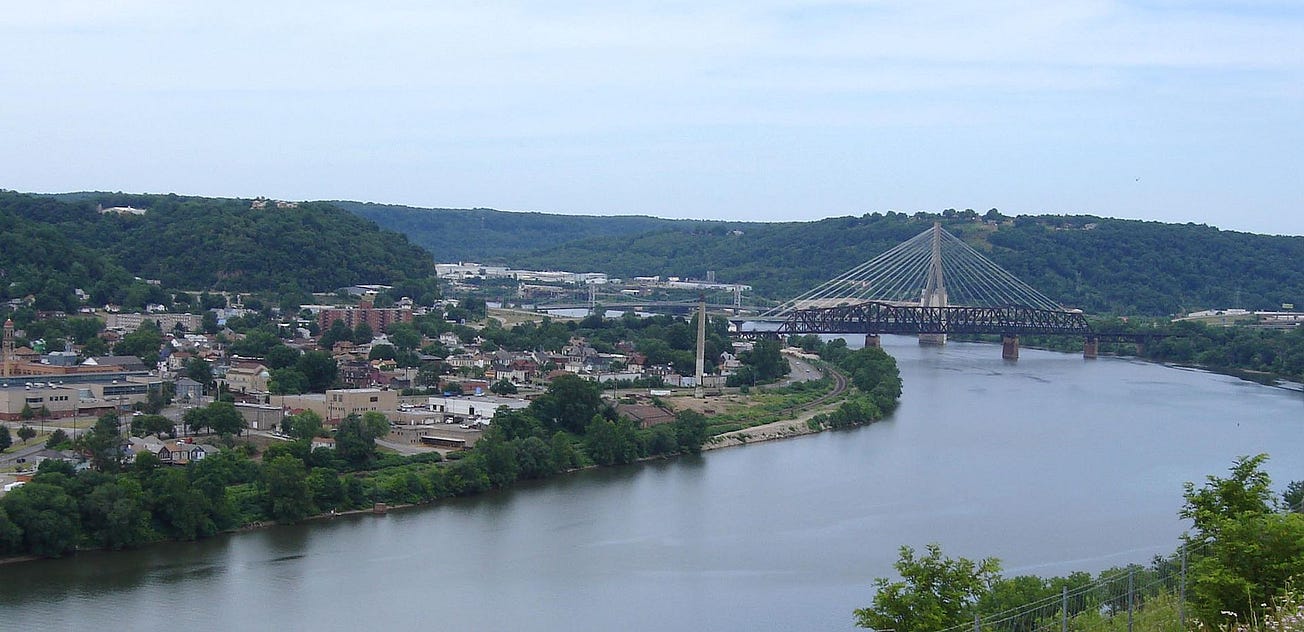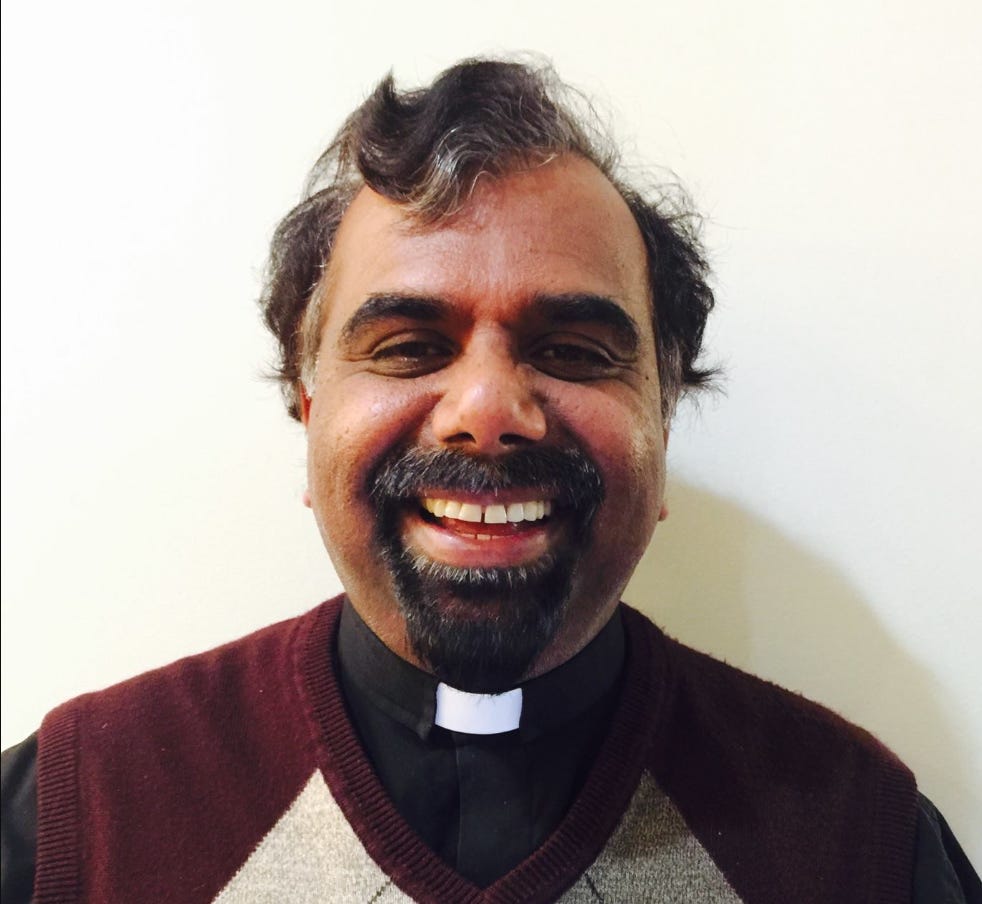Pillar subscribers can listen to JD read this Pillar Post here: The Pillar TL;DR
Hey everybody,
First things first, again.
The Pillar Podcast will have a LIVE SHOW EXTRAVAGANZA in Washington, DC, on November 14.
We will break down the fall meeting of the USCCB, and have a lot of fun, on November 14 at 7pm at the Royal Sands Social Club.
You are invited! BE THERE! Bring a friend. It will be awesome.
Now, back to our regularly scheduled programming.
You already know it’s election day, and you’ve probably already voted.
You might also know that today is the customary feast of Sts. Elizabeth and Zechariah, the parents of John the Baptist.
Elizabeth, you know, was the first to speak prophetically of the presence of the Lord: “Most blessed are you among women, and blessed is the fruit of your womb. And how does this happen to me, that the mother of my Lord should come to me? For at the moment the sound of your greeting reached my ears, the infant in my womb leaped for joy. Blessed are you who believed that what was spoken to you by the Lord would be fulfilled.”
And Zechariah spoke — or rather, wrote — prophetically, that his own son, John, should bear the name given to him by the angel Gabriel.
Elizabeth and Zechariah were prophets. They saw the presence of God in the world, and they said so. And they raised their son to be a prophet too, with Zechariah telling John from infancy to be a “prophet of the Most High,” to “go before the Lord to prepare his ways, to give his people knowledge of salvation, through the forgiveness of their sins.”
They raised him right.
John “grew and became strong in spirit,” until he was ready eventually to tell people about the one who was coming, the one who would “baptize you with the holy Spirit and fire,” who would “gather the wheat into his barn,” and, as to chaff, he would “burn it with unquenchable fire.”
What a family.
And, to be honest, I think it’s providential, or at least helpful, that we remember them on election day.
Because while it’s our privilege or duty or obligation to vote, and to be good citizens, it’s all the more our call to be prophets — to point to the presence of God, and to point where God isn’t, or where he’s been rejected.
It’s our call to point to the prospect of eternity with God, and to the prospect of “unquenchable fire,” too. It’s our call to point people to Jesus.
Now, as it happens, today we remember someone else too — Guy Fawkes, the fanatical Catholic plotter who planned in 1605 to blow up the British Parliament and King James I, in response to the persecution of Catholics in England.
While anti-Catholics treated the Gunpowder Plot as a vast Catholic conspiracy, it actually wasn’t. It was a little group of treasonous, traitorous, fanatical nuts. Jesuit confessors who knew about their plan tried to stop them.
And it was eventually Catholics who tipped off the English secretary of state to the plot, kept the king alive, and kept the realm from anarchy and invasion. They were repaid for their loyalty by widespread anti-Catholicism, spread maliciously by people who were in positions to know the truth.
I tell you all this because I imagine there are Pillar readers who sympathize with Fawkes a bit — not his actual methodology, mind you, but with the idea that our response to a culture hostile to faith, and to goodness, even, should be to gear up and fight back, with whatever means we’ve got. To stand up and notch some victories for the good guys.
But Elizabeth and Zechariah, it seem to me, point to a better way forward for us — to standing athwart a sinful culture, and seeing something other than an enemy. To seeing human beings made for eternity with God, and to calling them, warning them, encouraging them, and exhorting them to repent, to turn away from sin, and to follow after the Christ.
It’s a less satisfying path for the passions. But if you ask me, it’s exactly what our country needs — and will especially need in what could be difficult weeks ahead for the U.S.. There are more than enough would-be Guy Fawkes out there, and hardly enough Elizabeths, Zechariahs, and Johns.
The news
First, every media outlet in the world is trained today on elections, and at The Pillar, we didn’t want to miss out on the fun.
So Ed and I took some time to make our own election day prognostications — Pillar style.
I don’t think you’ll want to miss them. But just be assured that, as will probably be the case nationwide, you won’t know until next week whether we’re right or wrong.
—
Pillar readers are aware of an ongoing tension in the Chaldean Catholic Church, between Patriarch Louis Sako and five bishops he has threatened with ecclesiastical sanctions. One of those prelates is Archbishop Bashar Warda, of the Iraqi Kurdistan Archdiocese of Erbil.
In a lengthy interview with The Pillar last week, Warda discussed first the crisis situation for Christians in his part of the world, and then, briefly, the political situation in Iraq, his relationship with the controversial militia leader Rayan al-Kildani and the state of the conflict between himself and his patriarch.
Warda declined to discuss details, but he did emphasize his view that the conflict is “an internal Church matter,” and that “we don’t need to make a big case of it.”
Warda’s right. The case is now being decided, presumably at the Vatican’s Dicastery for Eastern Catholic Churches. So it’s up to dicastery officials to decide what kind of case to make out of it.
Meanwhile the archbishop made sure to tell The Pillar that “The Chaldean Church, with Patriarch Sako, is strong. The patriarch’s voice is loud and clear when it comes to speaking about Iraq in general, and we have to give him credit for that.”
Make of that what you will, readers — and read the rest of the conversation, right here.
—
The mild climate of Corsica makes it a pretty good winter weekend jaunt for Europeans, many of whom can get there with just a few hours flight.
Will it actually happen? Luke Coppen’s latest quickfire Look Closer analysis considers the possibility — and lays out some clear reasons why Corsica might be primed for a Pope Francis visit.
(Here’s a reminder that Look Closer, spun out of Luke’s daily Starting Seven, is a little bit of perk bonus content as a thank you to paying subscribers. And also a reminder that this is good stuff, and a pretty good reason to subscribe.)
Serious stuff.
With all of that going on, Opus Dei’s head, Msgr. Fernando Ocáriz, sat down with The Pillar recently to talk about the prelature’s challenges, and its future. And, by my count, the interview marks one of the first times, if not the first, that Opus Dei’s prelate has publicly addressed questions about the issues facing the prelature, and what’s been done to try and address them.
All of that means that if you follow Opus Dei, or you’re involved in their work, this interview is worth reading.
Here it is. And if you prefer, here it is in Spanish.
—
Finally, here’s some non-political election day reading for you.
Marriage prep is probably the last place you’d expect to someone to find a vocation to consecrated virginity. But for Celeste Thomas, a marriage prep session, decades ago, was the first place she began to have the sense of a call to an unexpected vocation.
For Thomas, discerning that call took time — and turmoil. But after more than two decades of consecrated virginity, Thomas says that her unexpected vocation has been a source of real and lasting joy.
For The Pillar, our friend Mary Farrow profiled this week a woman living an interesting vocation, with creativity and good humor.
Stop hitting refresh
Readers, we all need something to do today that’s more productive than hitting refresh on east coast exit polls every three minutes. Let’s just not do that.
Instead, see if you can draw a perfect circle.
(I can’t, and I forgot to screenshot my 94.4% perfect circle. But I bet you can beat me.)
—
If that doesn’t sound fun, launch asteroids for a while, or play “Who was alive?”
But after that, do us all a favor, and go to adoration to pray for our country, or pray a rosary, if you prefer.
This country needs our prayers. It needs Elizabeths and Zechariahs. Let’s be that.
“In the tender compassion of our Lord
The dawn from on high shall break upon us,
to shine on those who dwell in darkness
And the shadow of death,
And to guide our feet into the way of peace.”
Please be assured of our prayers, and please pray for us. We need it.
Yours in Christ,
JD Flynn
editor-in-chief
The Pillar

